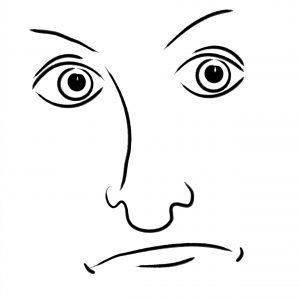Amid all the euphoria of getting published for the first time, and all the good wishes from friends and family, it’s easy to forget that your book is now out there in the world, alone and unprotected, and must sink or swim on its merits.
Soon enough, all that positivity will be challenged by your first negative review. It stings, of course, especially as it’s your first. But what happens next is up to you. Here are a few ideas.
Feel what you feel. 
It’s perfectly natural to be upset by a first bad review, and to feel hurt or even angry about it. Don’t try and stifle the feelings, or they could become toxic or disproportionate. Just process them fast so they don’t take over your head space. Go for a walk or a swim, smash a few balls around, cry on the shoulder of a pal, whatever works for you. Then move on.
Congratulate yourself.
Why not? Getting published is a massive achievement, and only a fraction of those who claim that their ultimate ambition is to write a book ever manage to do it. A bad review is a milestone that many will never get to enjoy!
Learn from it.
Some reviews reveal things you secretly knew or worried might be true. Perhaps you find it hard to write from the point of view of the opposite sex; perhaps you’re great on plotting but not so strong on dialogue. No book is perfect; no author can please everyone. Then again: there are no exams in this! Take whatever constructive feedback you can from the review and apply it to your work in progress.
Don’t catastrophise from one bad review.
Writers notoriously ignore the stack of positive reviews and only pay attention to the one bad one. But if one person (or a handful) is rude about your book, that hardly amounts to a tendency. When people read through Amazon reviews, they look for a consensus, and a book with nothing but perfect, bot-like five-star reviews looks very suspicious. Not only that, but I often buy books after reading negative reviews – because the kind of things the reviewer disliked are the very things I like in a book!
Don’t take it personally.
It’s tempting to look up the reviewer, to impute dubious motives to their comments, to privately trash what they’ve written. I’m sure that some reviewers do over-egg their sarcasm in order to draw attention to themselves. But reviewers are book-loving people too, and sometimes, with the best will in the world, they just don’t dig what you do, or your book is just not a good match for them. It doesn’t have to be personal if you don’t let it, and nothing good will come of toxic brooding on their words. Don’t get into defensive self-justifications; everyone has the right to their opinion. Wish the reviewer well and move on.
Grow that thick skin.
Here’s what Hope thinks about bad reviews: ‘I’m one who doesn’t care about a bad review. Frankly, I don’t think a book has ripened until it’s received a certain number of them. I hold my breath with mine until I do!’ This is a fantastically wise attitude, and definitely one to aim for. Getting a bad review is a bit like getting a rejection, after all. Each time it happens, you grow your writerly resilience a little more, take it a little less personally, until you can learn to embrace and even welcome those knocks.
BIO – Dan Brotzel is the author of Hotel du Jack (Sandstone) and Kitten on a Fatberg (Unbound)
Leave a Reply